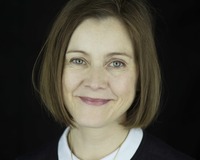- Your book “My life as a Bench” was very original. One of the things that I enjoyed about it, besides the story itself, was that it was not like other books I have read. It was refreshing to read a book so unique. How did you come up with the idea for your book?
Ideas come from anywhere and everywhere and often arrive when you least expect them. I was out with my dog one morning and as I walked by the river, I imagined a young voice complaining about being stuck in one of the memorial benches. Back home, I wrote a 300-word story about that voice reacting to her friends as they visited the bench and this (with the addition of many more layers) grew into a novel.
2. I imagine you will be doing publicity in London to promote “My life as a Bench”. Will you be promoting your book in the United States as well?
I have no plans to visit the US now, though I will be promoting Bench in a virtual way wherever possible. I was in Florida last summer on a family road-trip from Orlando to Key West via the Everglades (with a few Griswold-style moments) and we all loved it
3. You have written a psychological thriller “I Came to Find a Girl”, and “London Tsunami” described as dark and comedic, and “My life as a Bench” which is YA. Was branching out into different genres something you choose/wanted to do (as opposed to going where your thoughts and ideas took you)?
Whenever I have an idea, I think about what genre it would suit. I write for adults, children and YA and the main link is that my work is contemporary with an element of suspense. I like writing about how we live now, and I like young protagonists (the main character in I Came to Find a Girl is an art student), because there are so many choices to make when you are young – everything seems possible.
4. Are you currently writing a new book?
I always have a project on the go, and I am about a third the way through the first draft of a new novel, but it’s a bit stop and start as I’m having to take a break to promote My Life as a Bench.
5. Who are your favorite Authors?
There are so many authors that I love and admire: Emily Bronte, Dickens, Hemingway, James Salter, and contemporary voices such as Jeanette Winterson, Liz Jensen, Mark Haddon, Meg Rosoff, Emma Donoghue, and I’m currently reading The Glorious Heresies by Lisa McInerney.
6. What is your favorite book?
I’d have to go for Wuthering Heights by Emily Bronte because of its tone. It’s such an atmospheric book with a strong sense of place, memorable characters, and an interesting structure – a story within a frame – and of course there are ghosts!
7. Do you have a writing routine? If so, what is it?
When I’m in full-on writing mode, I walk my dog early and then return home to sit at my desk (wasting a considerable amount of time on social media) until I reach that sort of zoned-out state that enables me to imagine being a dead girl trapped in a bench (or whatever else I’m working on). At some point in the afternoon, the dog will hassle me for another walk and my family will return home.
8. I see that you have worked in various fields: greeting cards designer, journalist, magazine editor. I am assuming you always enjoyed writing and the written words. Was becoming an Author a natural progression or did you always want to be an Author?
Initially, I wanted to be an artist and then a designer. And while I was studying textiles at college, I realized I wanted to write more than anything else so I suppose I have always needed some sort of creative outlet but it took me a while to find which direction that should take.
9. When you begin writing a book, do you know how your book is going to end? For instance, I have read where some Authors like to begin a story and see where the writing process takes them. Other Authors know how their book is going to end and need to figure out how to get to that point. What is your approach to telling your/your character’s story?
With the psychological thriller, I Came to Find a Girl, I had no idea how it was going to end. There are several crimes, both murder and date-rape, involved in that novel and it was a revelation to me when I worked out the ending. With My Life as a Bench, I had a rough idea of the ending but the first draft bears little resemblance to the finished novel. There was major restructuring involved and a lot of rewriting. I began with a simple retelling of her life and then added layers – her afterlife as mere consciousness, her quest to break through and talk to the living, and her relationship with the bench next door.
10. You have written several books. Do you have a favorite book out of the ones you have written? If so, which is it?
Most writers will say their most recent work is their favorite, and I think this is because it takes a lot of focus, commitment, and passion (with many rewrites) to reach the end. I love Bench because I have a lot of empathy for Ren and the other characters. On the other hand, my debut novel, I Came to Find a Girl, is probably more personal as it draws on my experiences as an art student and the dark side of what it’s like to be young and single in a city.
11. Are your characters ever based on people in your life? If so, how do people react to that? If not, have you ever named your characters after people in your personal life?
I don’t base my characters on people I know, although I do think about certain personality traits I have come across. Lionel (the older bench-next-door) has certain attributes from both my English and Irish grandads. I wouldn’t use names of people in my personal life because a lot of my characters have quite a tough time. Saying that, I once named a bad character after a builder who tried to rip me off.
12. Reading is an escape for me. I love to relax and read. What do you do to relax?
I love London and enjoy visiting art galleries and gigs and walking in the city and its parks. And I read all the time: cereal packets, adverts on the tube, graffiti, plaques-on-benches, newspapers, novels – I will read anything.

